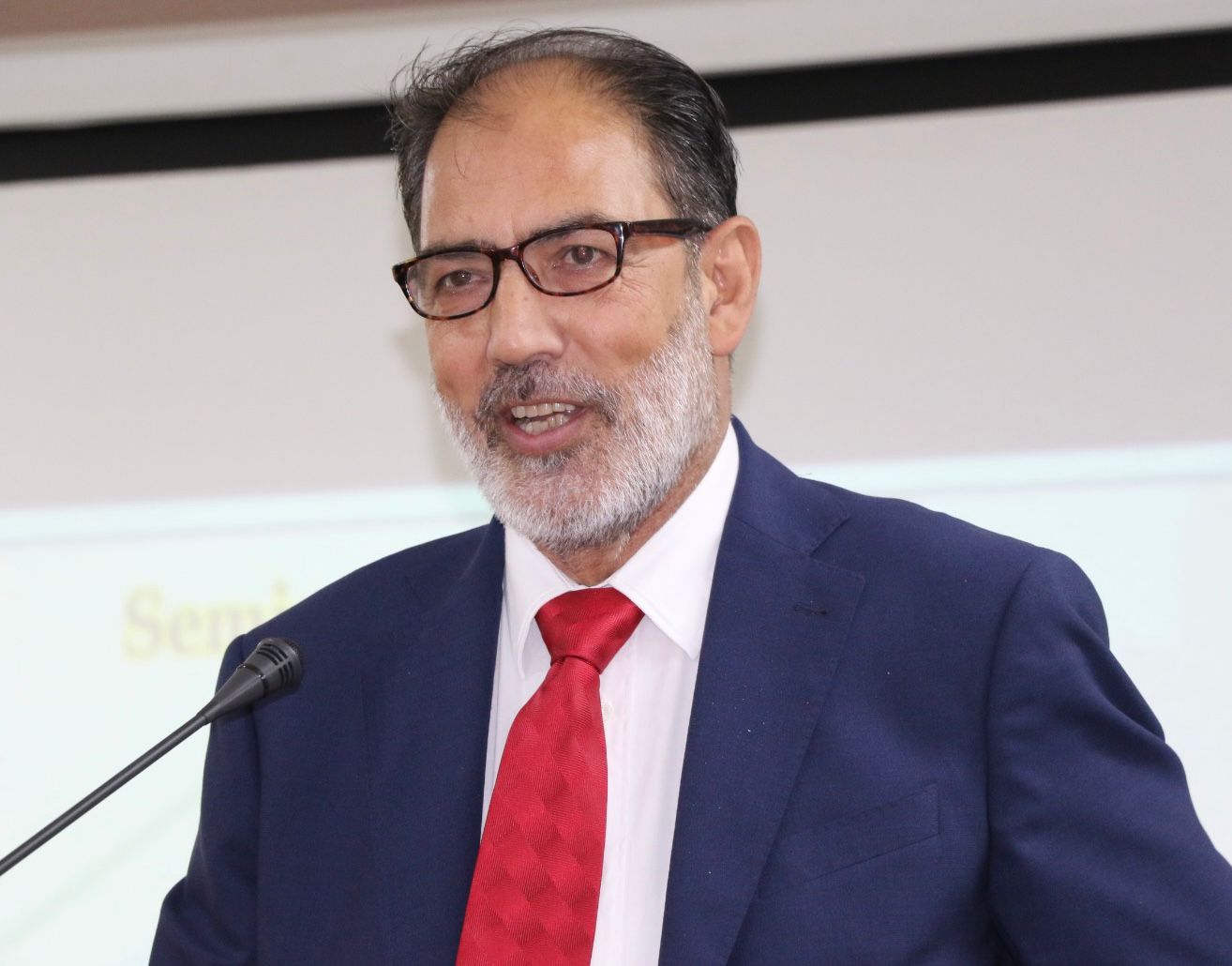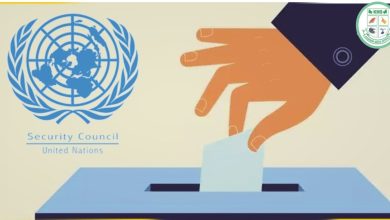Unravelling the Impact: The Seizure of Properties and land grab in Indian-Occupied Kashmir
By Altaf Hussain Wani
 The situation in Indian-occupied Kashmir (IOK) continues to evoke international concern, regarding the systematic human rights violations, perpetuated by occupational forces for the last 35 years, particularly for the last 5 years since the Indian government abrogated articles 370 and 35 A which gave Indian occupied Kashmir a certain degree of autonomy to safe the citizenship and land rights.
The situation in Indian-occupied Kashmir (IOK) continues to evoke international concern, regarding the systematic human rights violations, perpetuated by occupational forces for the last 35 years, particularly for the last 5 years since the Indian government abrogated articles 370 and 35 A which gave Indian occupied Kashmir a certain degree of autonomy to safe the citizenship and land rights.
Through the removal of Articles 370 and 35A in August 2019, the government of India institutionalised settler colonialism aimed at dispossessing Kashmiri Muslims of their land and erasing their narratives. This settler colonial project is facilitated by a surveillance apparatus that has historical roots in the region’s feudal past, where Hindu elites exploited Muslim peasants. The Indian state has systematically dismantled legal protections for land ownership, opened Kashmir to Indian settlers, and manipulated media narratives to present land dispossession as reclamation. By controlling the discourse surrounding land rights and identity, the Indian state seeks to redefine Kashmiri Muslims as encroachers on their land, thereby reinforcing a narrative of Hindu indigenization while silencing local perspectives and histories.
The region, already reeling from the impacts of conflict, is now facing a troubling trend of state persecution masked as an “anti-encroachment drive.” Occupying authorities have identified a staggering 178,005 acres of allegedly encroached state land in Kashmir and 25,159 acres in Jammu, targeting residents who have historically owned these lands under legal frameworks like the Big Landed Estates Abolition Act and the Jammu & Kashmir Tenancy Act. This systematic erosion of land rights underscores a troubling militarization of the region under the guise of strategic development. In a swift two-step process in July 2020, the Jammu and Kashmir Development Act, 1970, was amended to allow the declaration of “strategic areas” for the armed forces and scrapped a 50-year rule requiring local consent for land acquisition. These “strategic areas” can now include any land, including ecologically sensitive forests protected under the Forest Rights Act, 2006, further broadening military control. With over 56,615 acres (22,912 hectares) already occupied by defense entities, this policy enables an unprecedented land grab that not only disrupts the region’s socio-environmental fabric but also marginalizes local communities, cementing a disturbing precedent of unchecked state overreach.
This systematic campaign mirrors an Israeli settler colonial model, as it seeks to displace local populations from their agricultural and non-agricultural properties, thereby economically disempowering them. The land retrieval efforts are ostensibly aimed at facilitating the establishment of private land banks to support the Central government’s New Central Sector Scheme for Industrial Development in Jammu & Kashmir, which is aligned with the J&K Industrial Policy and other related initiatives. This raises serious concerns about the rights of landless peasants and the potential Reports indicate that since 2023, at least 193 properties have been attached in Indian-occupied Jammu and Kashmir. a statistic that underscores the urgency of the situation.
The implications of these property seizures are profound. By displacing local inhabitants and rendering them landless, jobless, and homeless in their homeland, the Indian authorities are not merely altering the physical landscape of Kashmir; they are fundamentally reshaping its socio-economic fabric. The drive for land cultivation and the annexation of properties have raised concerns about the influx of settlers from mainland India, particularly members of the Rashtriya Swayamsevak Sangh (RSS), an organization known for its nationalist ideology. This demographic shift threatens to alter the religious and cultural identity of Kashmir, further marginalizing the indigenous populations.
The systematic seizure of properties and land grabs has broader implications for the region’s socio-economic and political landscape. These actions serve to economically marginalize the Kashmiri population, rendering them vulnerable, depressed, and increasingly dependent on external forces. This dependency is exacerbated by the lack of job opportunities and the systematic dismantling of local governance structures, which historically provided some level of support and stability. The result is a population that is not only economically vulnerable but also psychologically impacted by years of conflict and repression.
The Indian military and security apparatus have employed a range of strategies to suppress dissent and undermine the aspirations of occupied territory. National Investigation Agency has been mandated under section 6 and section 10 of the NIA act to take Suo motu cognisance of any case related to alleged terrorism and confiscation of properties.
The Indian government’s approach towards occupied Kashmir has been characterised by a heavy-handed application of draconian laws, most notably the Unlawful Activities (Prevention) Act (UAPA), Armed Forces Special Powers Act (AFSPA), Public Safety Act (PSA) etc. Under UAPA, individuals advocating for self-determination or supporting the movement for freedom from India are often labelled as terrorists. This characterisation not only delegitimises, legitimate political dissent but also creates an atmosphere of fear and repression, where ordinary citizens are subjected to arbitrary detentions, harassment, and intimidation. Such tactics aim to stifle any form of resistance against Indian occupation, which is fundamentally at odds with the United Nations Security Council (UNSC) resolutions recognizing the Kashmiri people’s right to self-determination. Reports of torture, extrajudicial killings, and the use of sexual violence as a weapon of war have emerging in national and international organisations human rights Reports and international media, painting a grim picture of life under occupation. Peaceful protests demanding accountability and justice have often been met with excessive force, further exacerbating the cycle of violence, oppression and subjugation.
The international community has a crucial role to play in addressing these issues. Increased scrutiny and pressure on the Indian government are essential to hold it accountable for its actions in Kashmir. Advocacy for human rights and the protection of the Kashmiri people’s right to self-determination must remain at the forefront of diplomatic discussions. Furthermore, media coverage and awareness campaigns can help amplify the voices of those affected by these policies, ensuring that their struggles are not forgotten.
For Indian-occupied Kashmir it is not merely an issue of land; it is a manifestation of a broader strategy aimed at undermining the economic and social fabric of the region. By rendering the Kashmiri people vulnerable and dependent, the Indian authorities seek to consolidate their control over a territory that has long resisted occupation. As the situation continues to evolve, it is imperative that the international community remains vigilant and advocates for the rights of the Kashmiri people, ensuring that their voices are heard and their aspirations for self-determination are recognized. The path to peace and stability in Kashmir lies in acknowledging the rights and dignity of its people, rather than silencing them through oppression and violence.








